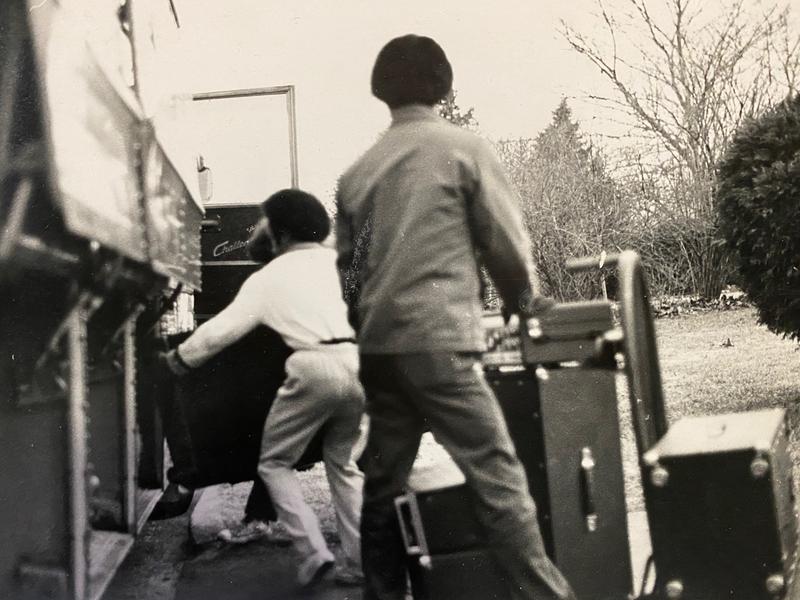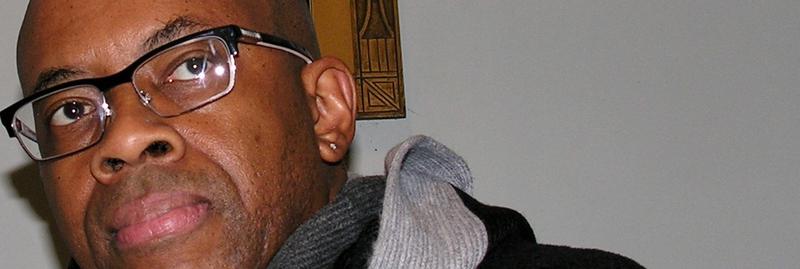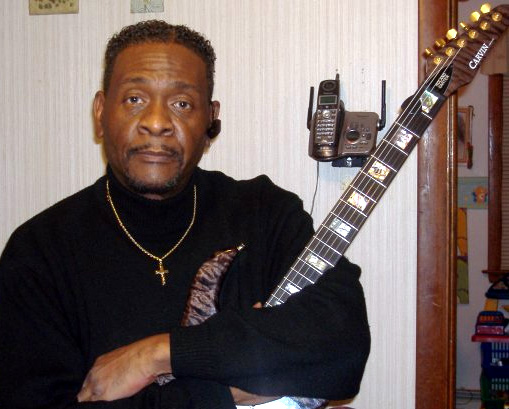The Lyric Book
Inner Views
Twitter Feed Bajanteecha
BEAUTIFUL LADY
BEHIND A TRUCK
BIG MONEY
BIG UP BIG UP
BRIDGING DE GAP (Bridging The Gap)
BROTHER S KEEPER
CHILDREN OF THE WORLD
CHILDREN PLAY
COME INSIDE
COME SHARE YOUR LOVE
CROP OVER
DON T TOUCH ME SO
EVELYN
EVERYBODY NEEDS A FRIEND
FALCON
GINE HOME
HEAH MISTER BIG TIME
HEAH MR BIG TIME
HER SONG
HONEY YOU ARE
I EN LYING
I LL MAKE IT WORTH YOUR WHILE
I M NOT MY BROTHER S KEEPER
I VE FOUND A FRIEND IN YOU
IF YOU BELIEVE
IMMIGRANT
IN MY LIFE
IN THE NAME OF V A T
IT S A FAMILY THING
KADOOMENT MORNING
LIFE OF THE PARTY
LIVE YOUR LIFE
LONG LONG TIME
LOVE IS ONE THE WAY
LOVE OF JESUS
ON THE LINE
P T
PACK UP SO
REMINISCING
RUNNING AWAY
TAKE CONTROL
TRUCK
TRUTH
WICKETS FLYING
Survival
Survival is like a mother’s child
Clinging to her breast.
The only hope for life
To be natured, to grow, to learn, to know
To sprout forth new fruit
Creating newborns
Like a mother’s child
Written by Lionel Crawford
Lionel Crawford
©1980, 2000 Lionel Crawford. Used by permission.
Social
Poeticworkz
Symbols, signs, lines, captured in time
thoughts collected, ideas injected, verbal
expressions, Poeticworkz.
Gestures, words, phrases,
riding so gracefully,
the oldest form of communication,
the beat. Poeticworkz.
desperately trying not, to separate the phrasing
from the beat of the drum, the meaning from the rhythm,
the statement from the idea, but instead to have them
work together in harmony, together like love, together in life,
to convey the same message, to deliver the word, Poeticworkz.
Childhood thoughts shatter the concept of the time line,
this constant need to distinguish between new and old,
past and present. As the bandwidth, arrogantly ignored,`
remains unexplored
for the sake of a time keeping concept, `
past, present, future, Poeticworkz.
Letters to syllables, syllables to words,
words to phrases, Poeticworkz.
phrases to sentences, sentences to passages,
passages to time, Poeticworkz.
time to infinity, infinity to space,
space the here and now, Poeticworkz.
entities come and go, back and forth, moving
through our visual spectrum, our audible frequencies
our emotional space, Poeticworkz.
Cymbals, drums beat rhythms, voices chant phrases,
praises, glorifying the art, communication, audible sounds,
comprehendible signals and signs, talking, can you hear?
gesturing, do you see? spirit beings, human beings,
thinking, living in this space, the here and now, Poeticworkz.
entities come and go, back and forth, moving through
our visual spectrum, through our audible frequencies, `
through our emotional space,
as the bandwidth,
arrogantly ignored,
remains unexplored, Poeticworkz
Written by Lionel Crawford
© 2000 Lionel Crawford. Used by permission.
Most local bands, would pack the musicians and the equipment into a few cars and drive to a gig or better yet, meet at the club or venue. I play in one band that actually used a hurst, but that’s another story for another time. Pressure Point had its own sound system so it was out of the question to try getting Altec Lansing speaker bins into a car. For several years we tried traveling like most regional bands; two or three cars followed by a U-Haul truck. The stories of the U-Haul truck scraping its way through fast food drive thru areas, maneuvering very narrow paths where trucks had no business going in order to get to a venue, or the reality that nobody really wanted to volunteer to drive the truck, pushed us to find better solutions.
Peter Hendricks, bassist and vocalist, found a man named Bill who owned a box truck and agreed to move the band around the state for a very fair price. That worked for a while, but there was still the problem of musicians driving to a gig, having a great time, playing hard on stage, breaking a sweat and after the gig, packing up and driving back home. As most musicians would know, a dangerous proposition. I remember one night me and Pet were coming from a New Years Eve gig and as we rolled down the highway, I-84 East, in the middle lane, we saw to headlights coming down the wrong side of the highway. We got over to the right or slow lane in hopes that the driver who was most likely drunk or confused would’t come over in our path. The driver was blazing down the highway and in a few seconds we saw why. Another car with its front end smashed up and the front bumper hanging was chasing after the first car. I think the next day Peter started looking into pricing the cost to travel by bus.
Peter struck a deal with the Arrow Bus Company which was located in East Hartford, CT. The logic was, the money it took to rent a U-Haul, pay for gas for several cars, not to mention wear and tear on the vehicles, and the peace of mind of the musicians not having to drive back and forth made it worth while.
We use to get a kick out of the bus pulling up to a restaurant or fast food joint and the manager and staff freaking out thinking that the bus was full of people, only to find out that there were only six musicians, three road crew, a driver and sometimes a few friends on board.
Lionel Crawford
bajanteecha@gmail.com

Pressure Point Travels- by Lionel Crawford 11/02/2020
The Journey
From the African west coast, they were abducted.
Taken from their homelands
and brought to the Caribbean and America.
The journey was long and devastating, but they survived.
They were denied their language and culture
and like up rooted trees, they were left to culturally wither and die.
The drum, a vital form of communication was prohibited.
From the drum came rhythms. From rhythms came life.
Written by Lionel Crawford
© 2000 Lionel Crawford.
Used by permission.
 | ||||
Alexander
Can a man live in Two worlds?
Appear in his creation and creation?
Live a dream in his time and my mind?
Does a man remember toys left behind?
Era’s creatures preserved by time?
Really - did he leave impressions on time?
(C)1980 Lionel Crawford
Published in Fraud Magazine 1980
 | ||||
Poems
Retrospect - The Interviews
 | ||||
Roland Carter Sr., affectionately embraces the wood, steel and electronics he fondly refers to as his guitar. If you went to high school or college in the late seventies in New England or checked out the music scene of the late seventies, early eighties; or checked out today’s Gospel festivals, you would realize that he has been here, singing and playing, all this time.
LC: Thank you for finally doing this interview. Let me start by asking, what influenced you to start playing guitar?
Roland: I would have to say Black Magic Woman by Santana, and almost any rock song that had a catchy guitar hook from the early seventies. I believe context wise, Santana was like Jr Walker with a guitar and tone. He was not just an instrumentalist but instead more like a vocalist with a hook and chorus; but with a fat tone guitar. Plus, the guitar intro to Black Magic Woman just grabbed me.
LC: Santana was definitely a strong influence on me also. Do you remember your first guitar and the body style, brand, stuff like that? Also, When you were in a position to buy your guitar of choice, what did you get and why?
Roland: If I recall, my first serious guitar was a solid body pure white Washburn. I only kept it about six weeks though because I caught this sweet deal on a beautiful black Fender Strat. It had a small chip in the finish on the bottom edge. I really went to work on that baby. I had that guitar in my hands so much; my wife got jealous of it. When I fell asleep with it, still in my hands one night, she threatened to burn it (smiles). I know Jimi Hendrix was my influence on that brand. Oddly enough Santana played a Les Paul.....Go figure.
LC: Over time you have shared stories about growing up down south. How did that experience play a role in your total sound or shaping you as an artist?
Roland: I think the biggest influence of that southern environment was the prevalence of music. See, the south has a musical rhythm that's just always there. Not just on special occasions or weekends but every hour of every day. We would sometimes have an impromptu talent show right in the field while we worked. So when you see someone playing a washboard, or spoons or a washtub bass, I think it was because that music just had to get out of you somehow. The guitar was the king daddy of all and if you played one well.....ah man, people would congregate on your front porch just to listen. I would just soak it all in. But to be honest, the music scene in Hartford around the 60's and 70's kind of solidified my desire to be a musician. Man, Hartford was burning hot during that era. I guess music was the commonality of that generation, huh?
LC: Yes. I agree. Hartford produced some great bands and musicians, during that period that made a mark on the national and international scene. The legend of Tony Bowen from Tony Bowen and the Soul Choppers comes to mind. I never got to meet him in person but met him through his music and stories I heard from other musicians, like Emanuel King and Philip Andrews. On the other hand I could sit and listen for days to Jackie Mclean tell stories about the American jazz scene and I was able to do that because Jackie brought that history with him to Hartford. Any other particular memories from the south come to mind?
Roland: I have a cousin in N.C. (North Carolina) named Joe that was born blind. Joe was considered to be a musical prodigy because he could not only play almost any kind of instrument; he was a fantastic singer as well. I took Tony Bowen and The Soul Choppers' 45 'Don't Be So Mean' down with me and he freaked out on how good Tony and the group sounded. He played that song over and over. He called Tony the best sax player he had ever heard.
That song became the yard stick around here by which all of the up and coming sax players were measured. Good Days.
LC: Wow! that was so powerful. That 45, “Don’t Be So Mean” influenced a lot of musicians. I actually played the song in a band called “The Standing Ovations” for quite some time before actually hearing the record. I had learned the guitar part from Sam Car, Mike Foy and Emanuel King. I was use to hearing the song played live; in a band with a lot of power so when I heard the recording, on a very small record player, I thought it was great but I was a bit disappointed. Any musician that has ever played in a band would know what I am talking about. Then one day I was in my studio listening to Mink on WQTQ, the Hartford Board of Education station at Weaver High, Mink said he was going to play the song so I had time to turn up the radio on a good stereo. The energy that came off of that recording and the way it made me feel was unbelievably strong. Roland, don’t get me started. I am supposed to be interviewing you, so let me stick to the questions. Can you come forward a bit and share some of your other musical experiences?
Roland: While stationed in North Dakota, as far as being a guitarist, not to be immodest, I was the big fish in a little pond. Little did I know I was in for a rude awakening when I had come back to Connecticut after my stint in the military; I was floored by all the good guitarist that were around. That includes you, Skip McDonald, Perry Hendrick, Ernest Cotten and of course Eli. The list is only partial but you get my point.
LC: Can I throw in some other guitar players like Eddie Smith, Slim from Berry Williams and the Soul Sets? How about Greg Gillespie, Rodney Redden and Jeffrey Mitchell? Yes, the list could go on.
Roland: I felt like I had to go into the woodshed and sharpen up my skills just to hang with you dudes. I'll never forget the first time I heard you play and I was like "that dude sounds just like the record" on whatever song Pok’ Chop was playing. (laughs). I took a few lessons and kept on pushing; playing in God knows how many start-up bands but never getting to that one with that “ready for the world” point. Know what I mean? It was a real highlight when I became a member of Pressure Point.
LC: Why was that?
Roland: Cause y'all was probably the hottest band around at that time. Despite what I considered to be somewhat of a rough start between us, I always felt like you were a great talent, still do, and a great friend, still do, and a great Teecha, still are. I totally enjoyed those times.
LC: I am glad you did, minus the “rough start” business, (laughs). I definitely want to cover that but perhaps during a Pressure Point revisited interview. Did listening to records have any effect on your musical attitude?
Roland: I remember when I was a young fellow living on Bedford St. in Hartford; just listening to music in my room, like some of those old Motown Revue live albums. I would be transported man, envisioning myself one day being on stage like that; music tight, singing tight, you know what I mean, “A Smokin' Band” ultimately making records, hearing myself on the radio. I have to say that the majority of those dreams came true for me with Pressure Point. Well, on a smaller scale of course but none the less, true. See, for me singing was like breathing, it was elemental. But, I was almost willing to give it up and just be a guitarist. In Pressure Point I had the opportunity to do both and believe me I felt like I was doing what I was born to do.
LC: I want to get back to the Pressure Point Days and talk about you, as a vocalist and also about that wicked first leg of the duet guitar solo, on "Come Inside" which we both played on. It was the second time we had gone into the Gallery Recording Studio, East Hartford, CT to record Come Inside. The first time the song was faster and more festive but had technical issues that I was not particularly happy with, however, the second time was the charm. What was your experience like during that time?
Roland: When we went into the studio and started recording "Come Inside", that was pure unadulterated orgasmic euphoria. I was a little awed by the process but strangely, not intimated, because we were well prepared, especially with the singing parts. I almost lost it there for a minute when you said to record that lead guitar part. I don't think I was expecting that, but it was totally cool conceptually because I realized after a moment or two it was something you had planned.
In hindsight I'm glad you didn't tell me, I didn't have time to fret about it, (pun intended). If I never thanked you for that let me say it now. Thanks Brother.........some of the best days of my life. I'll never forget that feeling man, when I heard that thing (Come Inside) for the first time on WKND. Wow!
LC: What is your focus, musically, these days?
Roland: These days my focus is mainly Gospel. God has blessed me in many, many ways and I feel compelled to give back something. I don't intent to isolate myself from other genres of music but man it seems like some of the best musical talent and creativity has migrated to Gospel. In Gospel you are not measured by that superficial “IT” factor that the major labels are looking for so much. Even if you are not considered to be eye candy you can still sing and play and inspire and uplift. I love that factor.
------------------------------------------------------------------------------------------------------------
Interview of Roland Carter Sr. by Lionel Crawford
Originally published 5/28/10
Roland Carter Sr., affectionately embraces the wood, steel and electronics he fondly refers to as his guitar. If you went to high school or college in the late seventies in New England or checked out the music scene of the late seventies, early eighties; or checked out today’s Gospel festivals, you would realize that he has been here, singing and playing, all this time.
L I O N E L C R A W F O R D . COM
The Official Site
Bridging The Gap Between People, Places, Culture & Time
InfraredLightUltraviolet
(c) 2023 Lionel Crawford.
FrequenciesSoundVibrations
SymbolsCommunicationSigns
The Connecticut Literary Anthology 2023, published by the Woodhall Press on October 3, 2023 is available at (https://www.woodhallpress.com) and amazon.com. I was honored to have one of my poems featured in the anthology this year.


